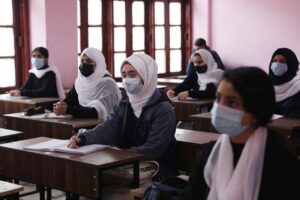
Nelson Mandela once said: “Education is the most powerful weapon which you can use to change the world.”
Never has this been truer than when it comes to girls. Support a girl through quality education and she will live a longer, healthier, and more prosperous life, allowing her to fully contribute to her family, community and country. That’s why the prime minister’s commitment in 2019 to support millions of girls through 12 years of education was enthusiastically received by parliamentarians of all political persuasions.
Since that promise, which now seems a lifetime ago, the rhetoric risks turning into empty promises and overused soundbites. Why? Because just over a year ago, the government decided to drastically cut the UK aid budget, hurting the most marginalised people around the world and letting down the girls this government promised to support. It took away their chance of a brighter future. The cuts have been relentless, even by the government’s own assessment.
On International Women’s Day, the international development committee was forced to use parliamentary privilege to publish an assessment of the UK aid cuts that the government had refused to release. This assessment, undertaken by then-foreign secretary Dominic Raab, admits that foreign aid cuts have had a significant, detrimental impact on women and girls.
When the government chooses to stop funding programmes designed to prevent the exploitation of women and girls, to put girls in school, or to support disabled people who are most at risk of being left in poverty; it loses the right to call itself a “development superpower”.
